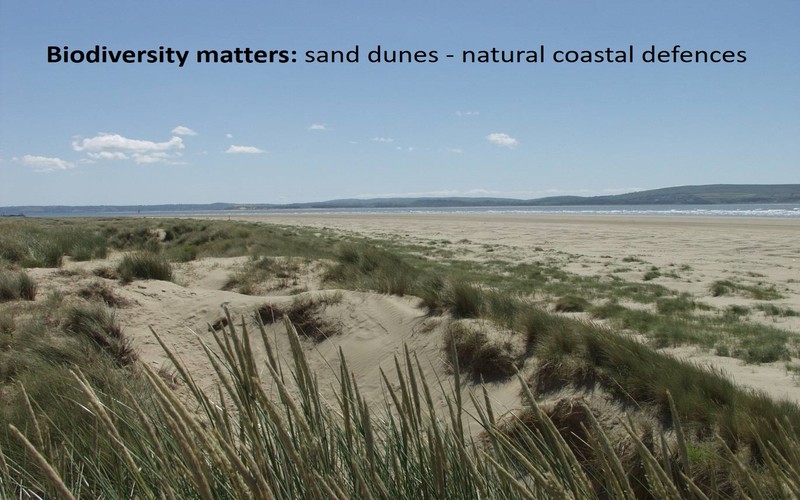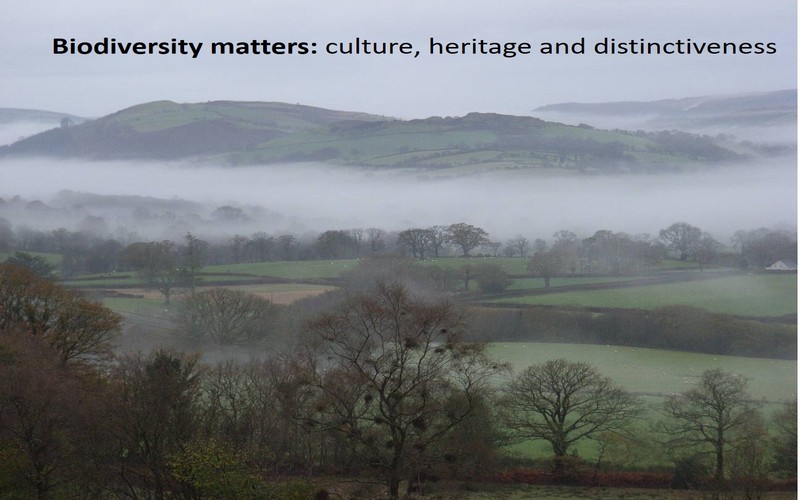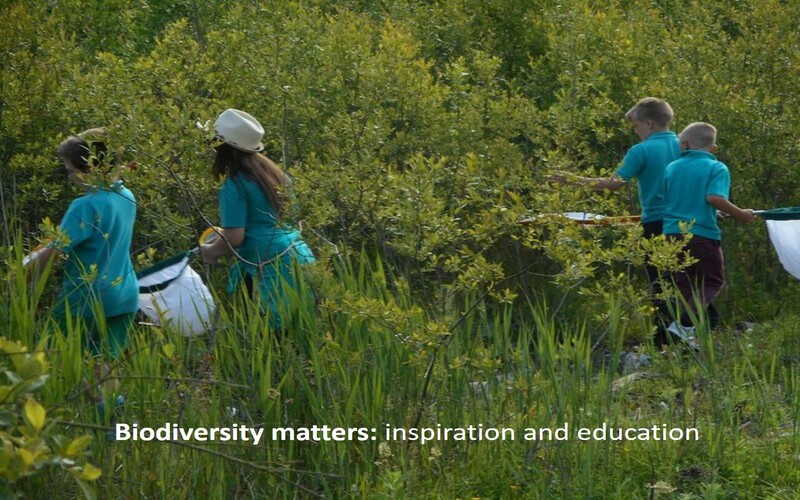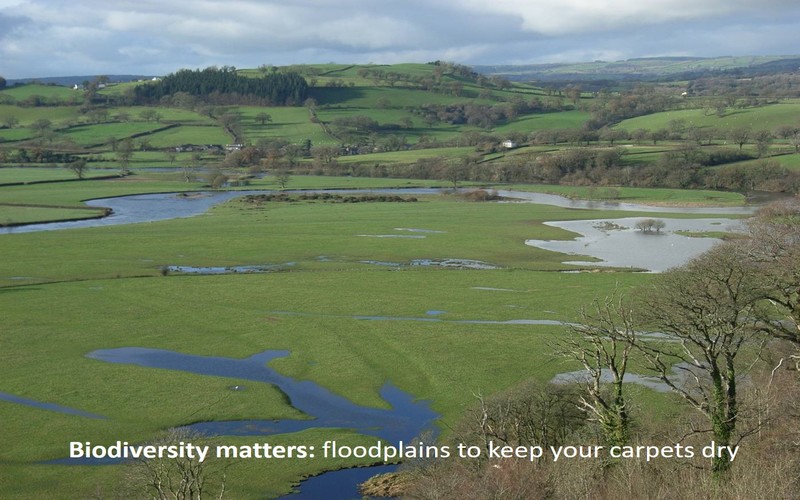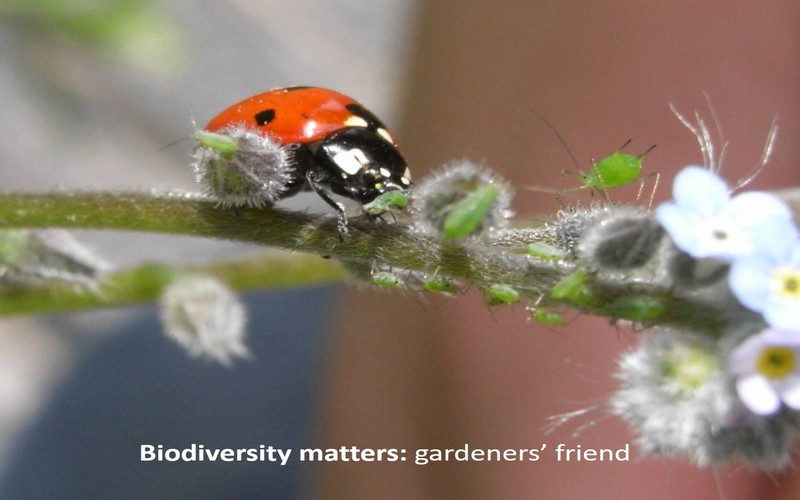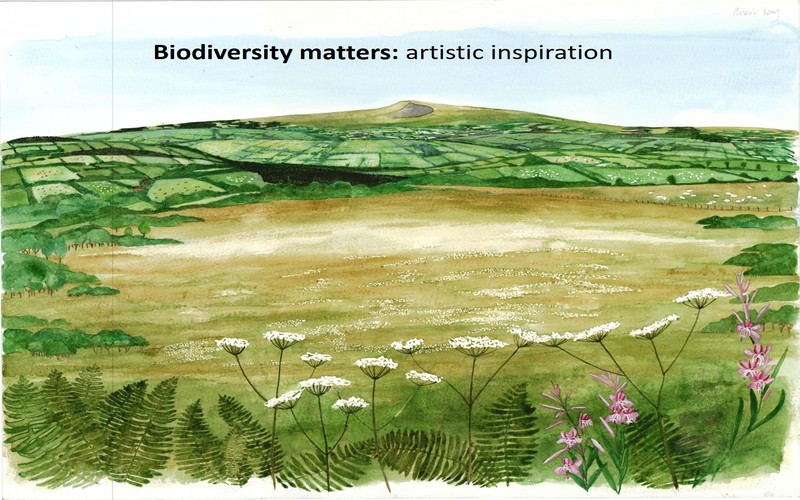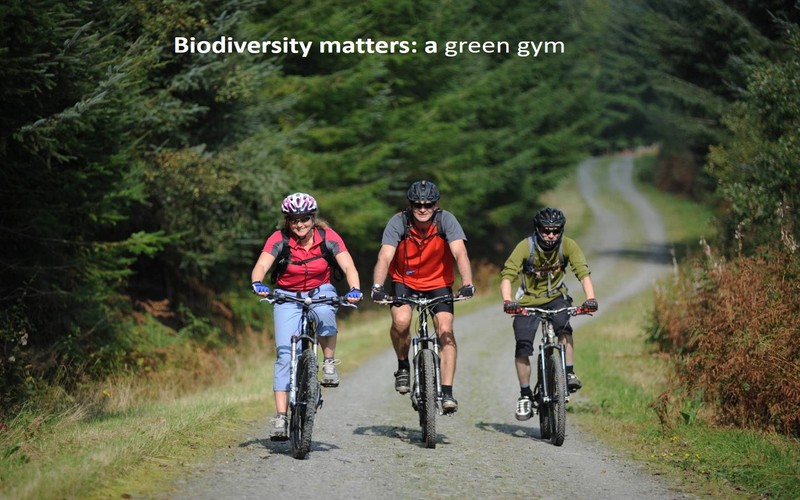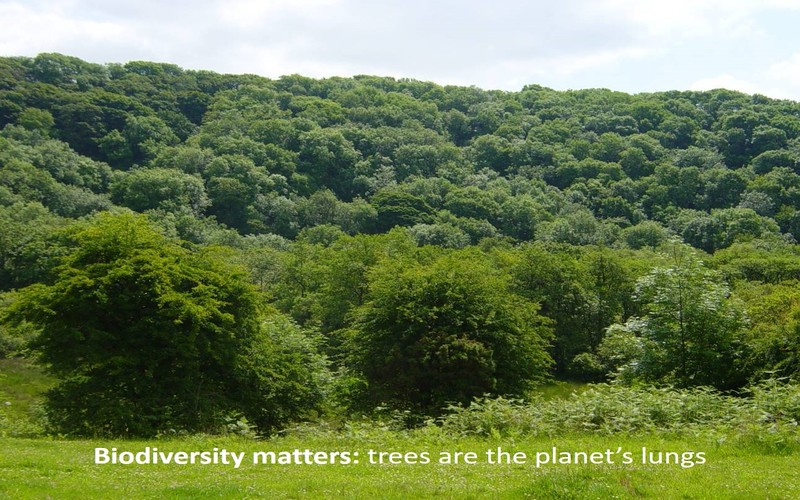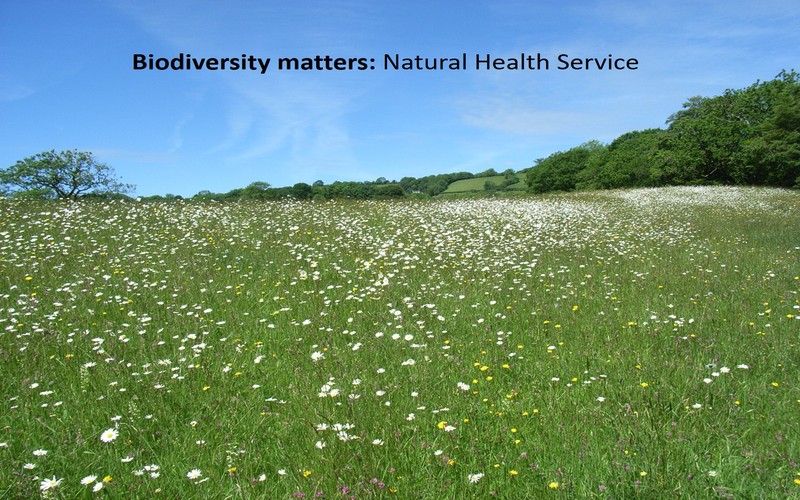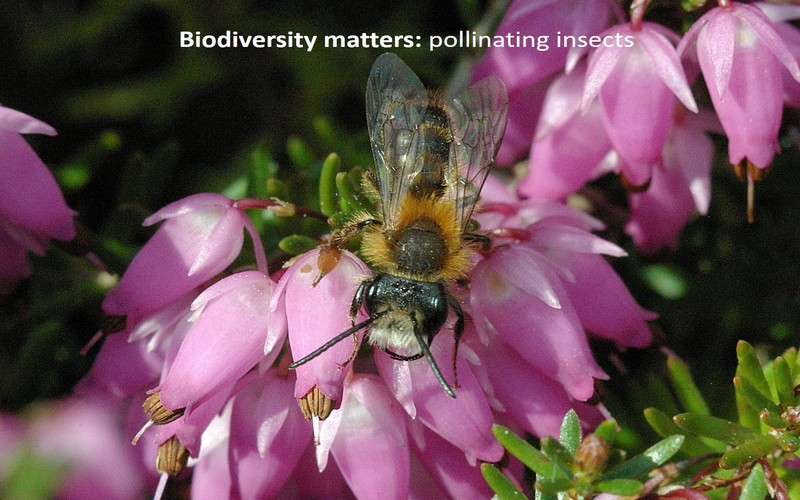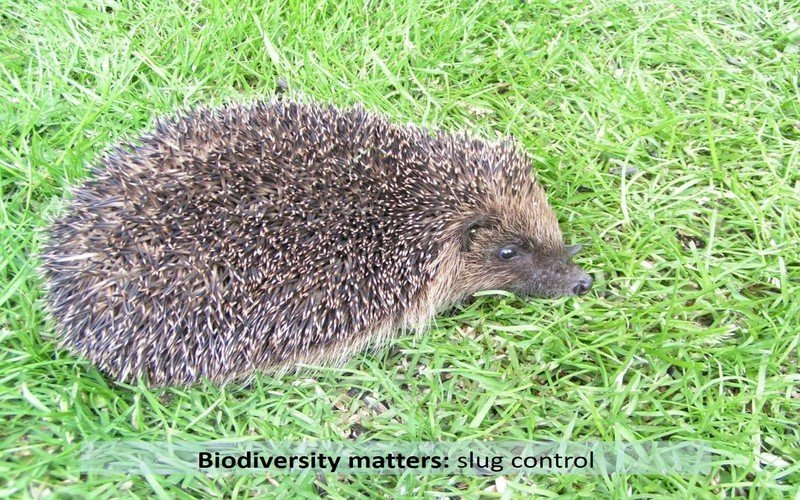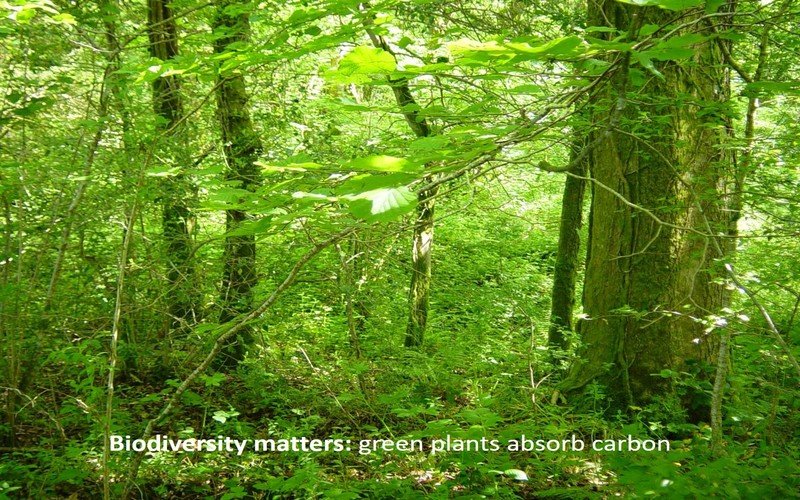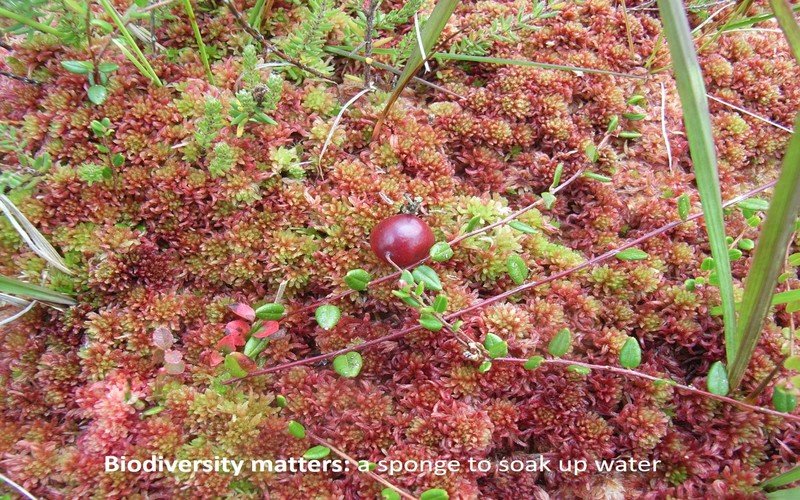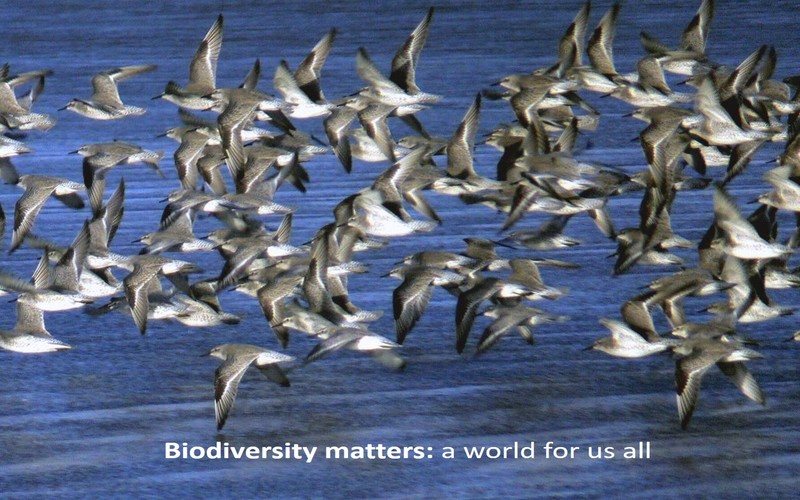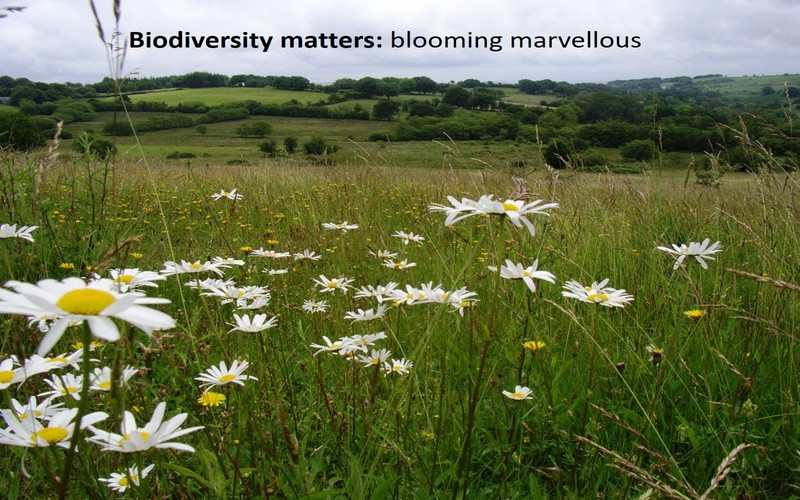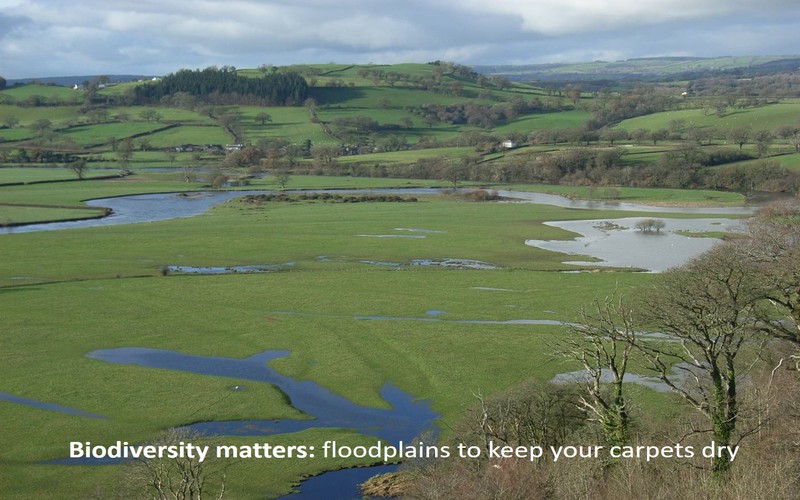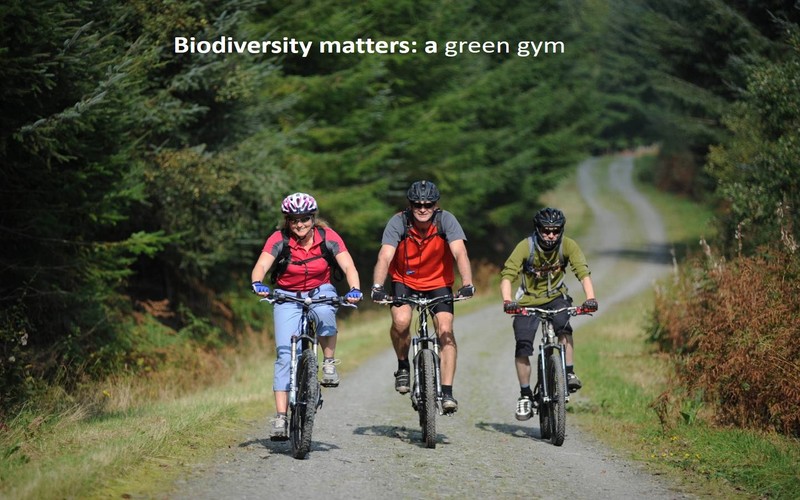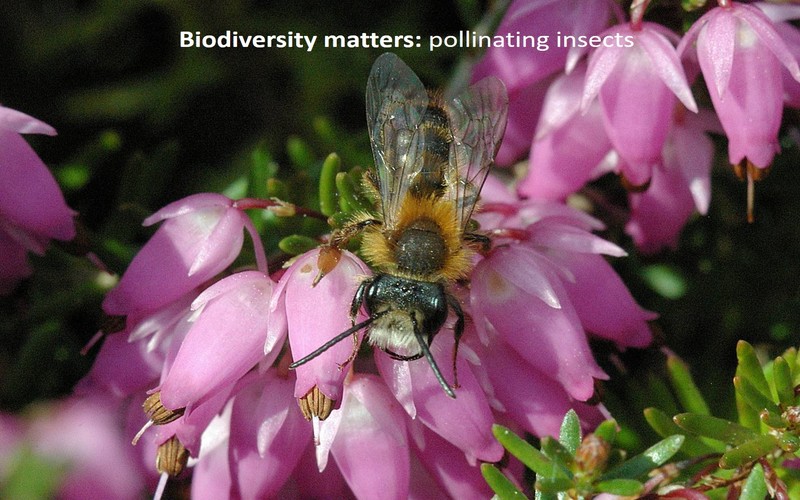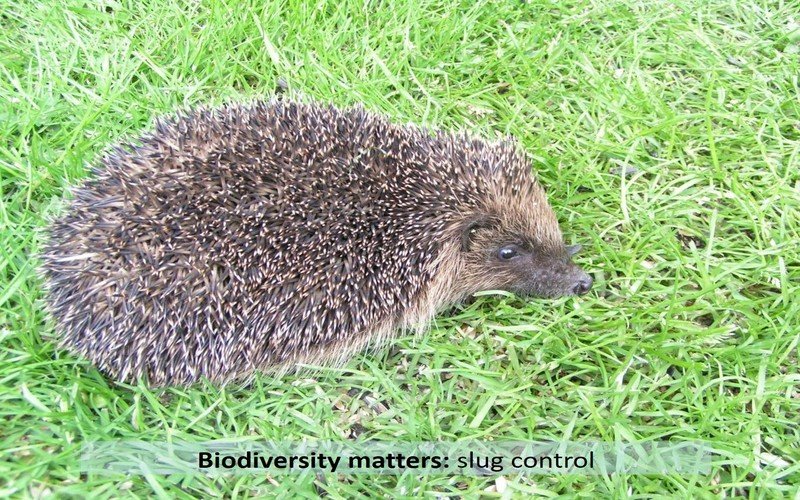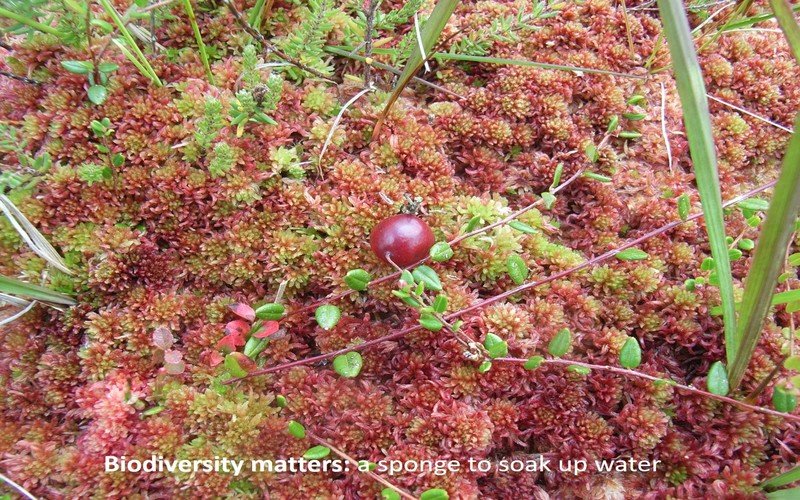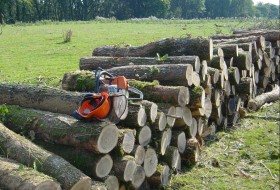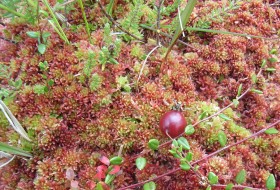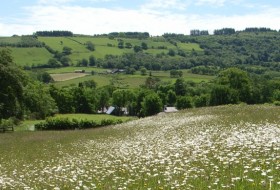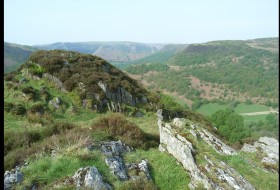Why Biodiversity Matters
Page updated on: 08/12/2023
The natural environment of Wales supports the huge variety the wildlife that lives here. But we must remember that biodiversity also sustains our lives. A healthy natural environment is a vital part of a sustainable and robust society in Wales. Wildlife provides us with pleasure, inspiration and attractive communities.
Carmarthenshire’s natural environment matters to us all - for a whole variety of reasons: ethically, emotionally, environmentally and economically. It is at the very foundation of our society and the basis of our economic success and wellbeing.
Although it is not always obvious, biodiversity provides us with many of the things that sustain our lives, through a number of important services: provisioning, regulating, supporting and cultural services.
A lot of these services we get for free! The cost of replacing these (if possible) would be extremely expensive. For example, bees are vital to our economy – they pollinate many of our crops such as strawberries and apples as well as animal fodder crops such as clover. In 2007 The National Audit Office collated research working out the value of honeybees to the UK economy. The values of the bees’ services were estimated at £200m a year. The retail value of what they pollinate was valued closer to £1bn.
In 2019 the State of Nature Report highlighted that the net loss of biodiversity appears to be ongoing, and despite some success in Wales, such as the recovery of otters and red kites, the loss of biodiversity and the declines in the favourable conservation status of many habitats and designated sites is continuing. Changing land-management practices, through agriculture and urbanisation, pollution and invasive non-native species are all key pressures leading to habitat and species loss and fragmentation.
Planning
Planning Application Guide
- Development Idea
- Do I need a Planning Agent?
- Key Information
- Pre-Application Stage
- Types of Planning Application
- Application submission
- Validation
- Live Application
- Planning Committee
- Appeals
- Compliance / Enforcement
- Completion of Development
Major Planning Applications
Extending / changing your home
- Lawful Development Certificate
- Pre-application advice service
- Householder planning permission
- Neighbouring properties / party walls
- Bats and nesting birds
- Conservation areas
- Listed buildings
Search for a Planning Application
Breach of planning
Change of Use (Planning)
Pre-application consultation (PAC)
Highways planning liaison
Development Viability Model (DVM) Assessment Tool
Sustainable Drainage Systems (SuDS)
Apply for Section 106 funds
Local Development Order (LDO)
Listed Buildings and Conservation Areas
- Understanding listing
- When is listed building consent required?
- Alterations to Listed Buildings
- Applying for listed building consent
- What happens after a decision on listed building consent has been made?
- Works to a listed building without consent
- Maintenance and Repair
- Further sources of information
- Conservation Areas
Conservation & countryside
Street naming and numbering
My Nearest - Planning information
Planning Policy
- Local Development Plan 2006 - 2021
- LDP Review Report
- Supplementary Planning Guidance (SPG)
- Affordable Housing
- Affordable Housing areas
- Annual Monitoring Report (AMR)
- Housing Land Supply
- Community Infrastructure Levy (CIL)
Local Development Plan 2018 - 2033
- Integrated Sustainability Appraisal and Habitats Regulations Assessment
- Delivery Agreement
- Candidate Sites
- Inspector’s Report and Adoption
- Submission and Independent Examination
- Second Deposit Revised Local Development Plan
- Preferred Strategy (Pre-Deposit Public Consultation)
- Development of an evidence base
- Frequently asked questions
- First Deposit Revised LDP
Renewable Energy
Planning Ecology
New phosphates targets
- What action have we taken?
- West Wales Calculator
- Mitigation Measures
- Next Steps
- Phosphates - Frequently Asked Questions
- Teifi Demonstrator Catchment Project
Biodiversity
- Why biodiversity matters?
- Priority Species in Carmarthenshire
- Priority Habitats in Carmarthenshire
- Carmarthenshire Nature Partnership
- HLF Bogs project
- Marsh fritillary project
- Hedgerows
- Woodlands
- Pollinators
- Get out and about!
- Legislation and Guidance
- Protected sites
- Ash dieback disease
- Wildlife in your Ward
- Local Places for Nature
Waste
More from Planning



